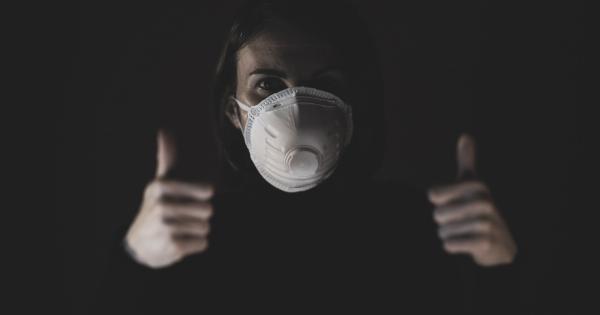The common cold, often trivialized as a mild inconvenience, is a viral infection that affects millions of people worldwide.
While it typically presents with mild symptoms, such as a runny nose, sore throat, and cough, it can occasionally lead to serious complications and, in rare cases, become life-threatening. It is crucial to understand when a common cold can escalate into severe health issues and take appropriate precautions to prevent such complications.
1. Severe Respiratory Infection
One of the potential complications of a common cold is the development of a severe respiratory infection. This can occur if the viral infection spreads to the lower respiratory tract, affecting the lungs and bronchial tubes.
Symptoms may include high fever, severe cough with green or yellow phlegm, chest pain, and difficulty breathing. People with weakened immune systems, such as the elderly and those with pre-existing respiratory conditions, are more susceptible to developing severe respiratory infections.
2. Pneumonia
Pneumonia is a severe respiratory infection that can be triggered by a common cold virus. When the cold virus invades the lungs, it can cause inflammation and infection, leading to pneumonia.
Symptoms of pneumonia include high fever, cough with phlegm, chest pain, rapid breathing, and fatigue. Pneumonia can be especially dangerous for young children, older adults, and individuals with weakened immune systems. Prompt medical attention is necessary if pneumonia is suspected.
3. Bronchitis
Bronchitis is an inflammation of the bronchial tubes, which are responsible for carrying air to and from the lungs. A common cold virus can irritate and infect these tubes, leading to bronchitis.
Symptoms of bronchitis include a persistent cough, chest discomfort, shortness of breath, and wheezing. While acute bronchitis is usually self-limiting and resolves within a few weeks, it can develop into chronic bronchitis in some cases, requiring ongoing medical management.
4. Sinusitis
The common cold can also cause sinusitis, which is the inflammation of the sinuses. When the cold virus infects the nasal passages and sinuses, it can lead to blockage and bacterial growth, resulting in sinusitis.
Symptoms may include facial pain or pressure, nasal congestion, a discolored nasal discharge, and reduced sense of smell. Sinusitis can be acute or chronic, and in some cases, it may require medical intervention such as antibiotics or nasal corticosteroids to alleviate symptoms and resolve the infection.
5. Otitis Media
Otitis media, commonly known as an ear infection, can occur as a complication of a common cold.
When the cold virus spreads to the middle ear, it can cause inflammation and fluid accumulation, leading to ear pain, earache, and even temporary hearing loss. Otitis media is more prevalent in children but can affect individuals of any age. Prompt treatment with appropriate antibiotics or pain relievers is usually necessary to manage the infection and provide relief from symptoms.
6. Asthma Exacerbation
Individuals with asthma may experience worsening of their symptoms during a common cold. The viral infection can trigger inflammation and constriction of the airways, leading to an asthma exacerbation.
Common symptoms of asthma exacerbation include wheezing, coughing, shortness of breath, and chest tightness. It is important for asthmatics to manage their condition effectively, follow their treatment plan, and seek medical assistance if their symptoms worsen.
7. Complications in Immunocompromised Individuals
People with weakened immune systems, such as those undergoing chemotherapy, organ transplant recipients, or individuals with HIV/AIDS, are at a higher risk of developing serious complications from a common cold.
Their immune system may not be able to effectively fight off the viral infection, making them susceptible to more severe respiratory infections, pneumonia, and other complications. It is crucial for immunocompromised individuals to take extra precautions to avoid exposure to viruses, including the common cold, and seek medical attention if they develop symptoms.
Prevention Measures
While complications from the common cold are relatively rare, taking preventive measures can significantly reduce the risk of developing severe health issues. Here are some effective prevention strategies:.
1. Hand Hygiene
Regularly wash your hands with soap and water for at least 20 seconds, especially after being in public places or in contact with someone who is sick. If soap and water are not readily available, use alcohol-based hand sanitizers.
2. Cover Your Mouth and Nose
When coughing or sneezing, cover your mouth and nose with a tissue or your elbow to prevent the spread of respiratory droplets. Dispose of used tissues immediately and wash your hands afterward.
3. Avoid Close Contact
Avoid close contact with individuals who have cold symptoms and try to maintain a safe distance from anyone showing signs of respiratory illness.
4. Strengthen Your Immune System
Maintain a healthy lifestyle by eating a balanced diet, exercising regularly, getting enough sleep, and managing stress. A strong immune system can help reduce the risk of infection and complications.
5. Stay Hydrated
Drink plenty of fluids, such as water and herbal tea, to keep your respiratory system hydrated and help flush out toxins.
6. Avoid Touching Your Face
Avoid touching your face, especially your eyes, nose, and mouth, as these are common entry points for viruses.
7. Keep Your Environment Clean
Regularly clean and disinfect frequently-touched objects and surfaces, such as doorknobs, light switches, and electronic devices. This can help reduce the spread of viruses and bacteria.
8. Vaccination
Consider getting an annual flu vaccine to protect yourself from influenza viruses, which can cause symptoms similar to a common cold.
While the flu vaccine doesn’t provide direct protection against the common cold, it can help prevent other respiratory infections that may have similar complications.
9. Stay Home When Sick
If you are experiencing cold symptoms, it is important to stay home, rest, and avoid exposing others to your illness.
10. Seek Medical Attention
If you or a loved one experiences severe symptoms or if your condition worsens, seek prompt medical attention. Early intervention is crucial in preventing complications and ensuring proper treatment.
Conclusion
Though the common cold is often regarded as a minor inconvenience, it can lead to serious complications in certain situations.
Severe respiratory infections, pneumonia, bronchitis, sinusitis, otitis media, and asthma exacerbations are some of the potential complications associated with a common cold. It is vital to recognize the signs of these complications and take preventive measures to reduce the risk of developing them.
By practicing good hand hygiene, avoiding close contact with sick individuals, and maintaining a strong immune system, we can minimize the chances of a common cold becoming life-threatening.


























